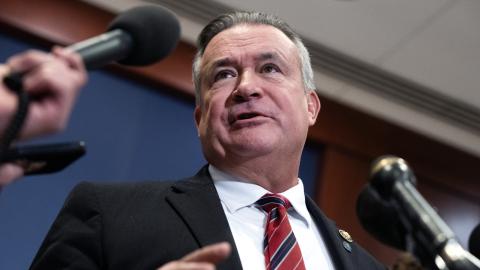
07
May 2010
Past Event
To The Rescue? Foundations Grantmaking Response to the Financial Crisis
To The Rescue? Foundations Grantmaking Response to the Financial Crisis
Past Event
Hudson Institute, Washington, D.C. Headquarters
May 07, 2010
Share:

Related Events
03
March 2026
In-Person Event | Hudson Institute
Securing Venezuela’s Freedom after Maduro
Featured Speakers:
Leopoldo López
Joel Frushone

03
March 2026
In-Person Event | Hudson Institute
Securing Venezuela’s Freedom after Maduro
Please join Venezuelan opposition leader Leopoldo López for a discussion on the future of Venezuelan democracy, the role of civil society in credible political and economic reforms, and the pathway to free and fair elections.

Featured Speakers:
Leopoldo López
Joel Frushone
03
March 2026
In-Person Event | Hudson Institute
A Strategic Response to Sino-Russian Cooperation: Perspectives from Europe and the Indo-Pacific
Featured Speakers:
Thomas J. Duesterberg
Justyna Szczudlik
Greg Brown
Moderator:
Masashi Murano

04
March 2026
In-Person Event | Hudson Institute
Securing America’s Critical Mineral Supply Chain: A Conversation with Congressman Rob Wittman
Featured Speakers:
Mike Gallagher
Congressman Rob Wittman

04
March 2026
In-Person Event | Hudson Institute
Securing America’s Critical Mineral Supply Chain: A Conversation with Congressman Rob Wittman
Join Distinguished Fellow Mike Gallagher and Congressman Rob Wittman (R-VA) for a discussion on the congressman’s recently introduced Securing Essential and Critical US Resources and Elements (SECURE Minerals) Act and Congress’s role in securing America’s economic security.

Featured Speakers:
Mike Gallagher
Congressman Rob Wittman
06
March 2026
Virtual Event | Online Only
Evidence over Assumptions: A Return to Proper Policy at the Intersection of Antitrust and IP
Featured Speakers:
Kirti Gupta
Hon. Kathleen O’Malley
Urška Petrovčič
Moderator:
Devlin Hartline

06
March 2026
Virtual Event | Online Only
Evidence over Assumptions: A Return to Proper Policy at the Intersection of Antitrust and IP
Join Hudson for an expert panel discussion on the latest policy developments and what an evidence-based approach means for the future of innovation.

Featured Speakers:
Kirti Gupta
Hon. Kathleen O’Malley
Urška Petrovčič
Moderator:
Devlin Hartline





















